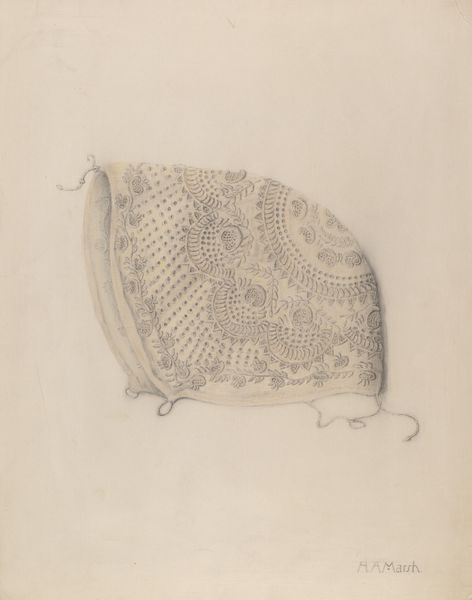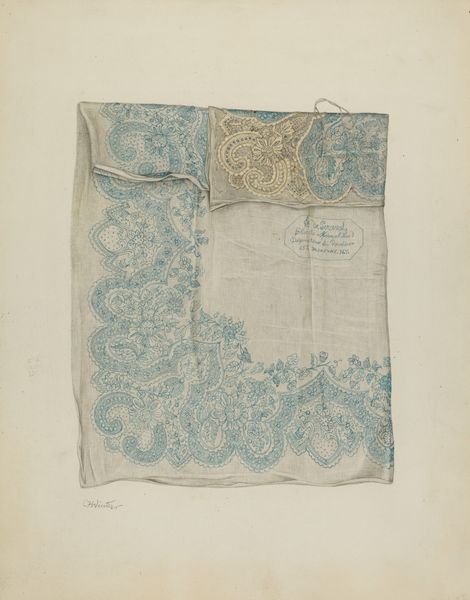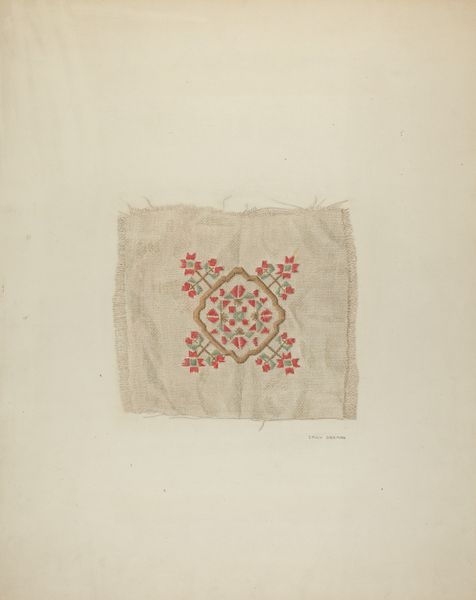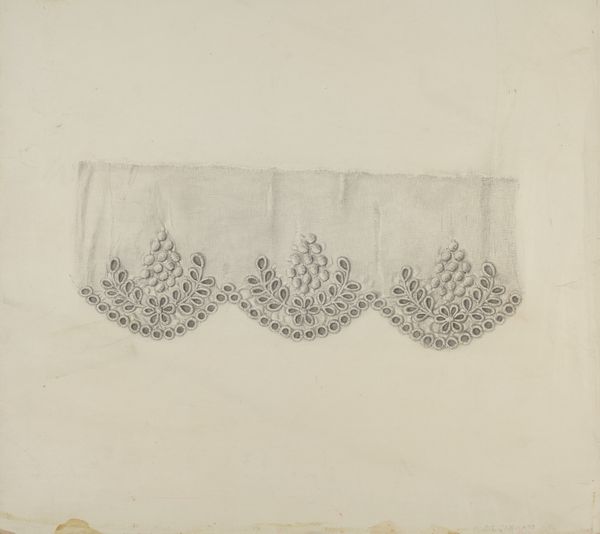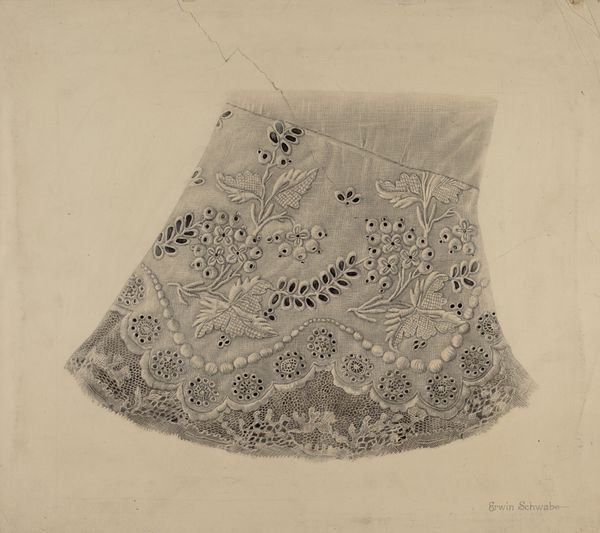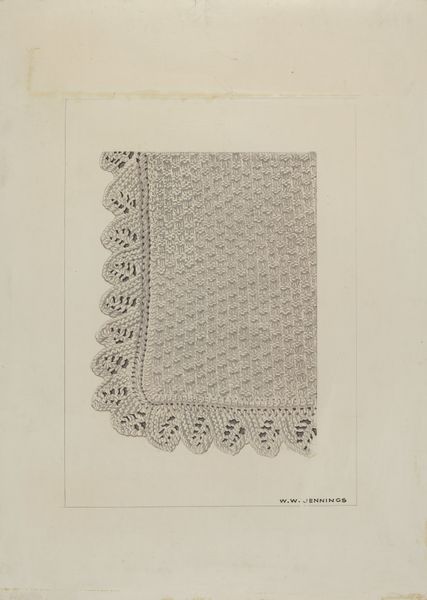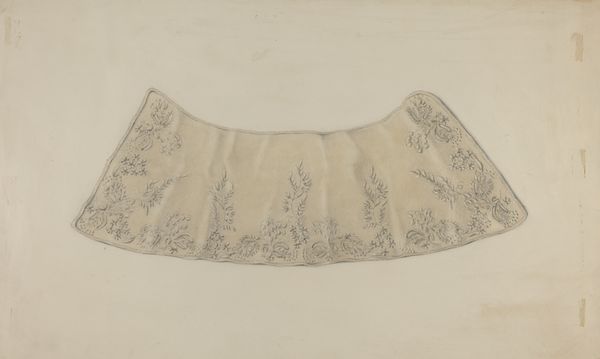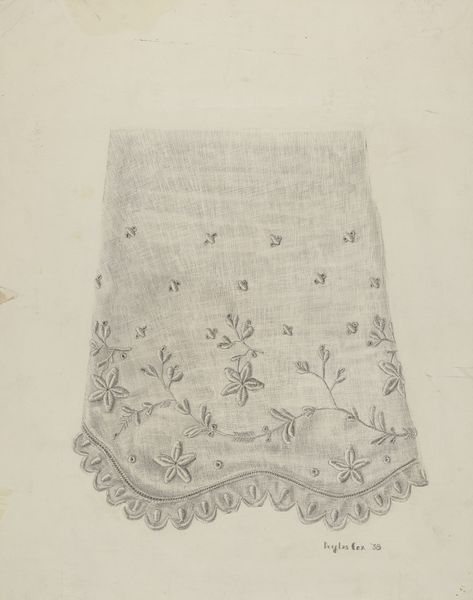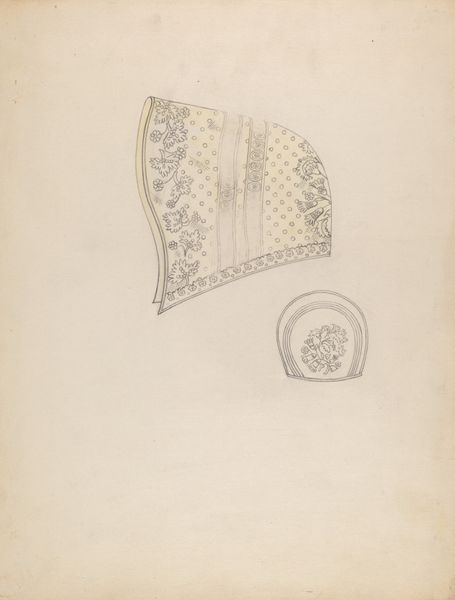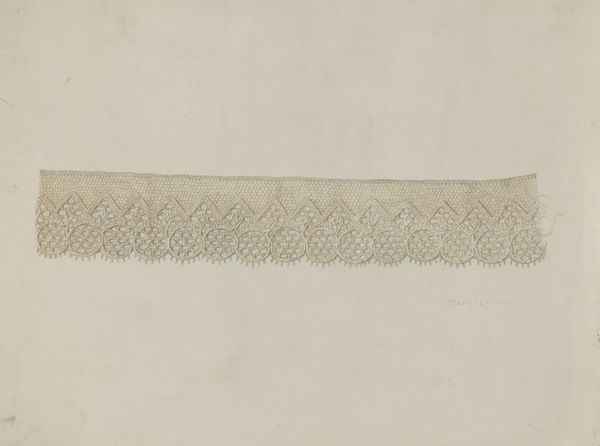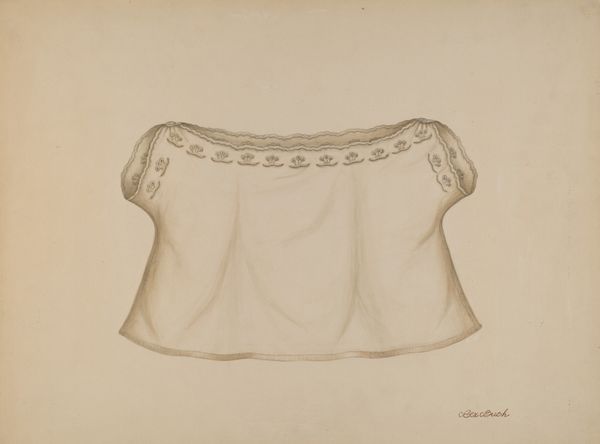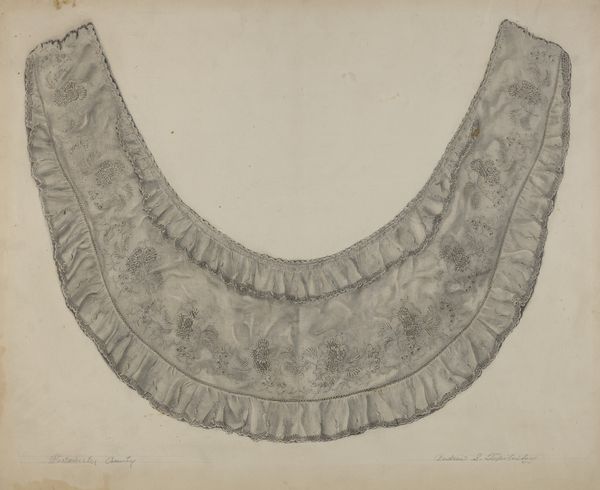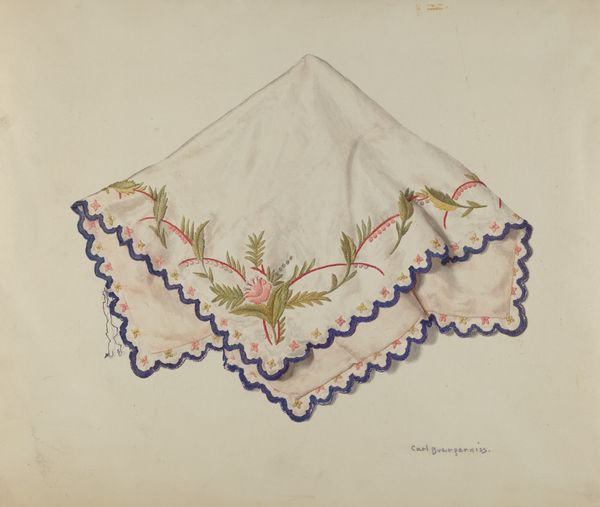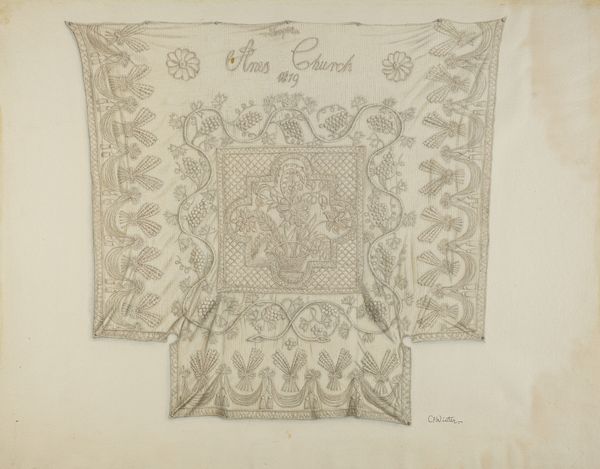
drawing
#
pencil drawn
#
drawing
#
amateur sketch
#
aged paper
#
toned paper
#
light pencil work
#
pencil sketch
#
incomplete sketchy
#
possibly oil pastel
#
underpainting
#
watercolor
Dimensions: overall: 41.3 x 29.4 cm (16 1/4 x 11 9/16 in.) Original IAD Object: 16" high; 16" wide
Copyright: National Gallery of Art: CC0 1.0
Editor: This is Eleanor Gausser's "Wedding Handkerchief," created around 1939. It seems to be a drawing, maybe pencil and watercolor, of an actual handkerchief. The details of the floral embroidery are lovely. What strikes me is the delicate, almost ephemeral quality. How would you interpret this piece? Curator: Immediately, my focus shifts to the handkerchief itself as a material object. The choice to render it in pencil and possibly watercolor raises questions about access to materials. Was Gausser documenting a family heirloom because she lacked the resources for other forms of artistic expression? This also intersects with gendered labor; needlework was often considered a domestic craft, separate from "high art." Editor: So, you’re suggesting the medium itself is key to understanding its context? Curator: Precisely. Think about the labor involved in creating an actual embroidered handkerchief, and then consider the labor of replicating that in drawing. The "Wedding" in the title leads us to think about ritual, performance, and the social expectations surrounding marriage and women’s roles. The handkerchief then becomes more than a simple object. It's a symbol laden with meaning through the means of its making and how that meaning can be recreated by a pencil. Why document it rather than simply owning the object? Editor: I never thought of the artistic choice reflecting back on the material's own production in that way! I’d focused only on its potential sentimentality, but it's fascinating to see the social context through its materials and methods of representation. Curator: Exactly. The "preciousness" isn’t inherent but assigned through a nexus of social and material conditions. And considering the artist’s position within those structures opens the artwork up to so many other insights. Editor: It gives the piece a whole new layer of meaning. I'll definitely consider the means of production in other works moving forward.
Comments
No comments
Be the first to comment and join the conversation on the ultimate creative platform.
